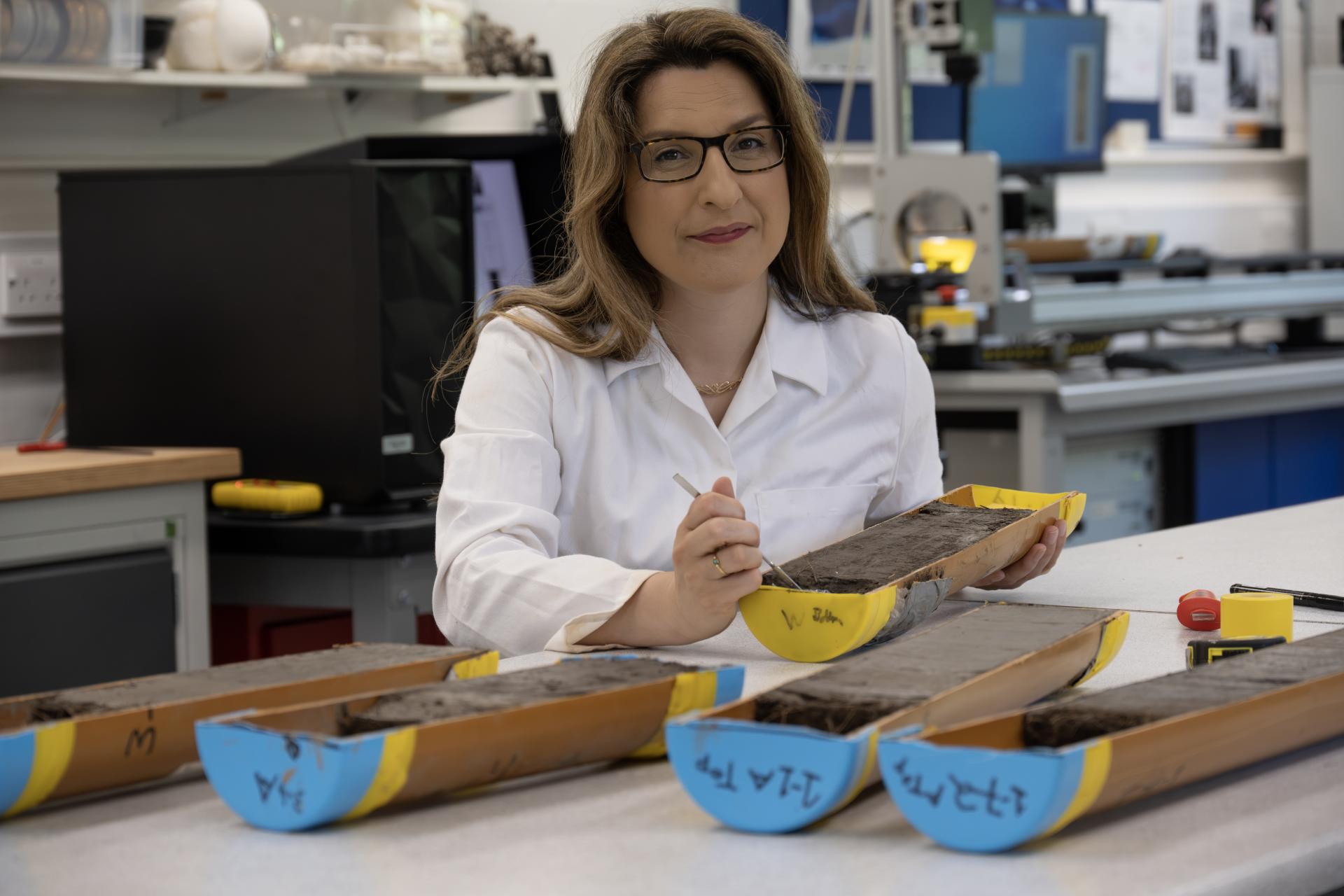Seagrass meadows are the unsung guardians of our coastal seas providing a nature-based solution to climate change. They are shown to be very effective in capturing carbon, which they do at a rate much faster than plants on land.
A new programme announced today by Climate Impact Partners and Deloitte, in collaboration with Project Seagrass, will channel critical funding to the UK’s National Oceanography Centre (NOC) to support UK seagrass restoration and unlock long-term finance to save and restore seagrass meadows across the UK and beyond.
Through this groundbreaking programme, NOC will provide new insights into the long-term carbon storage potential of seagrass habitats, which can capture carbon more effectively than forest habitats on land. Despite its crucial role in protecting coastlines, and supporting marine biodiversity, seagrass has been neglected for decades, with a third of habitats lost globally in the last century.
Findings from the research will underpin the development of a seagrass carbon code and blue carbon framework – enabling companies to finance seagrass restoration at greater speed and scale. Using cutting-edge technology at its Southampton site, NOC scientists will analyse and carbon-date sediment cores stored in NOC’s British Oceanographic Sediment Core Facility (BOSCORF), alongside collecting new samples. This research will reveal how quickly seagrass binds and stores carbon – evidence critical to the creation of the code and framework.
Dr Claire Evans explains: “Seagrass meadows are the unsung guardians of our coastal seas providing a nature-based solution to climate change. They are shown to be very effective in capturing carbon, which they do at a rate much faster than plants on land.”
“They have been neglected for decades, which has led to their large-scale degradation and loss. The funding through this programme exemplifies how we can turn that loss into an opportunity through furthering research and large-scale restoration.”
Holly Evans, Head of Philanthropy at NOC, said: “Thanks to the collaboration and generous support of organisations like Deloitte on the UK seagrass recovery programme, to which we are contributing through our Blue Carbon Fund, we are growing our understanding of blue carbon stored around the UK and enabling large scale restoration of the UK’s seagrass beds. Individuals, foundations and corporations all have an important role to play in understanding our changing ocean, so as a collective we can play our part in helping to restore it.”
Unlocking large-scale seagrass recovery
The programme forms a key part of Deloitte’s Beyond Value Chain Mitigation (BVCM) activities - a mechanism initiated by the Science-Based Targets Initiative (SBTi) to enable companies to accelerate the global net-zero transformation by supporting mitigation actions or investments outside their own value chains.
“Reaching net-zero will require the global economy to decarbonise as part of a connected system,” said Smruti Naik-Jones, Chief Sustainability Officer of Deloitte UK and North & South Europe. “This incredible seagrass programme, developed by Climate Impact Partners, enables us to learn more about these marine ecosystems, fund critical research and help unlock a powerful tool in the fight against the climate crisis.”
Seagrass offers a unique opportunity to mitigate climate change while delivering significant co-benefits for biodiversity and coastal communities,” said Kirsty Schneeberger, Head of Product Innovation at Climate Impact Partners. “Imagine seagrass meadows as underwater vaults – they lock away enormous amounts of carbon for long periods, potentially millennia, as long as they remain healthy and undisturbed. We need to ensure they receive long-term and large-scale financing to accelerate the restoration and protection of these underwater wonders.”
“We need to protect and restore seagrass whilst supporting the continuation of sustainable human activities that occur amongst or depend directly upon seagrass ecosystems, said Dr Leanne Cullen-Unsworth, Chief Executive Officer and Charity Co-Founder, Project Seagrass. “We need to do this now, as a connected global community. This programme helps to deliver this.”
Support us
NOC’s Blue Carbon work aims to grow our understanding of the rate at which ocean ecosystems capture and store carbon, the existing or potential emissions resulting from changes to them, and their contribution to supporting fisheries and the coastal protection they can provide.
We work with businesses and philanthropists, who are like-minded visionaries, to advance our global understanding of the ocean. To find out more about partnerships to advance carbon research please contact Jo jo.cole@noc.ac.uk or call +44 (0) 7562 167 556.

